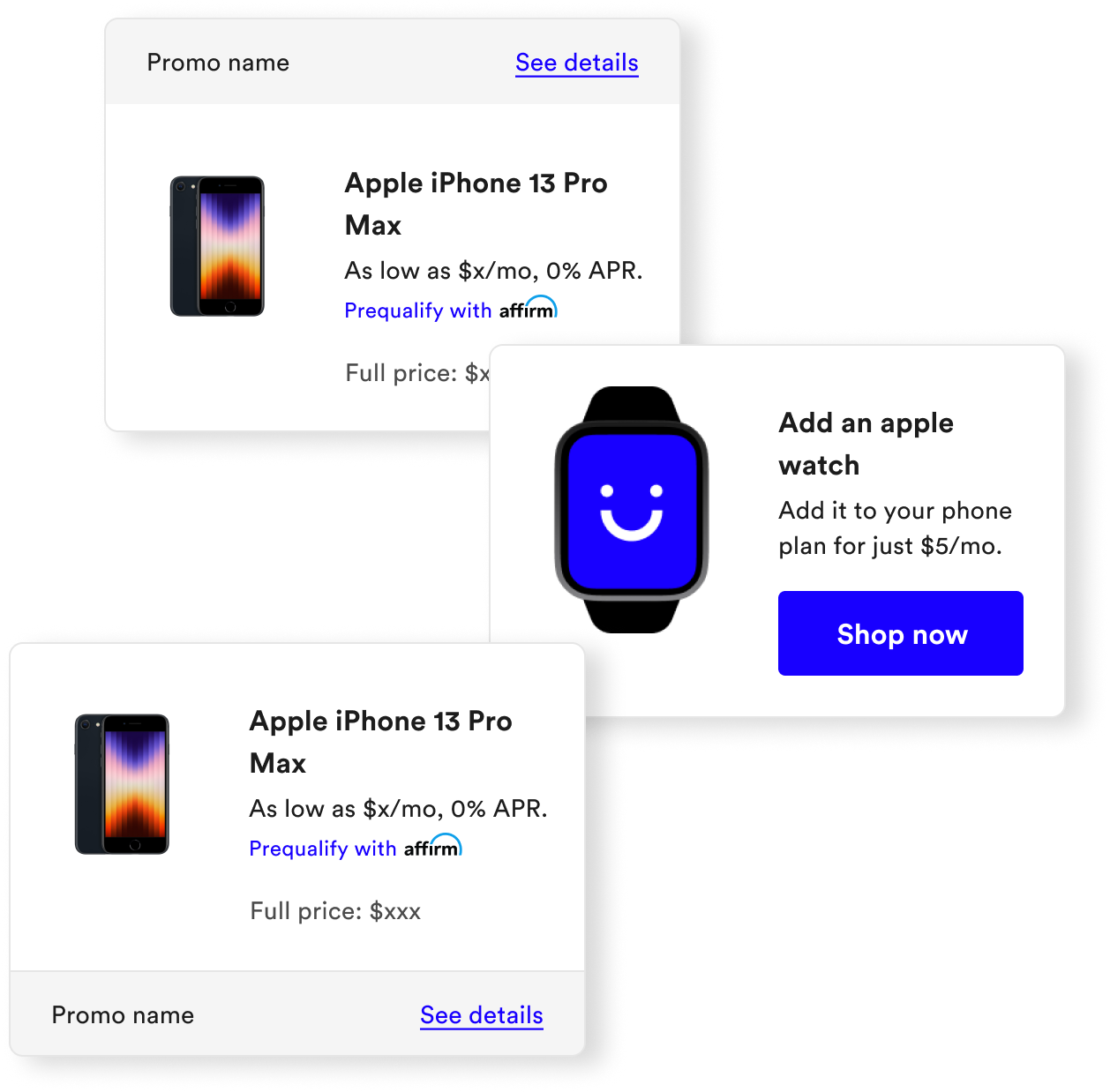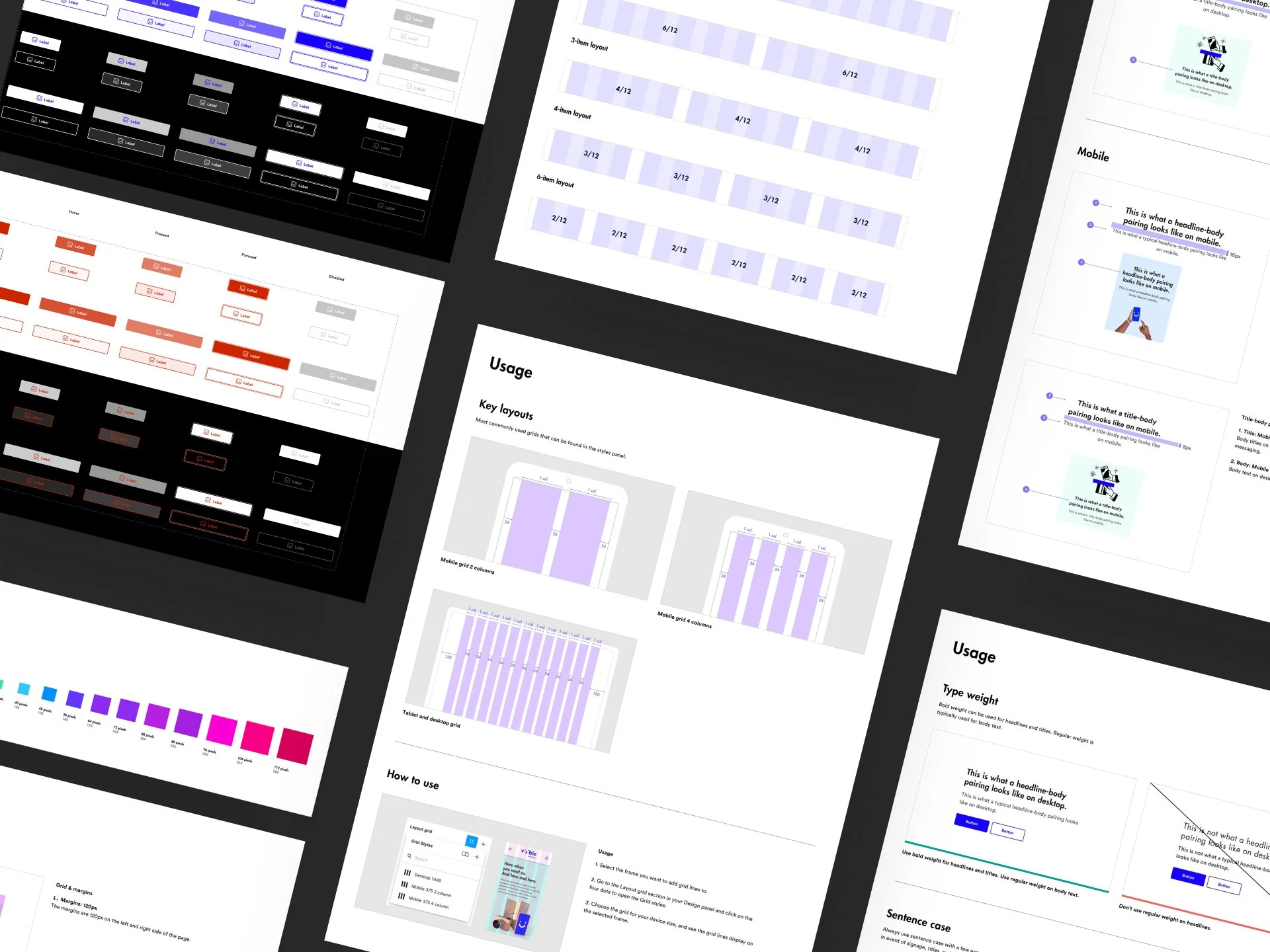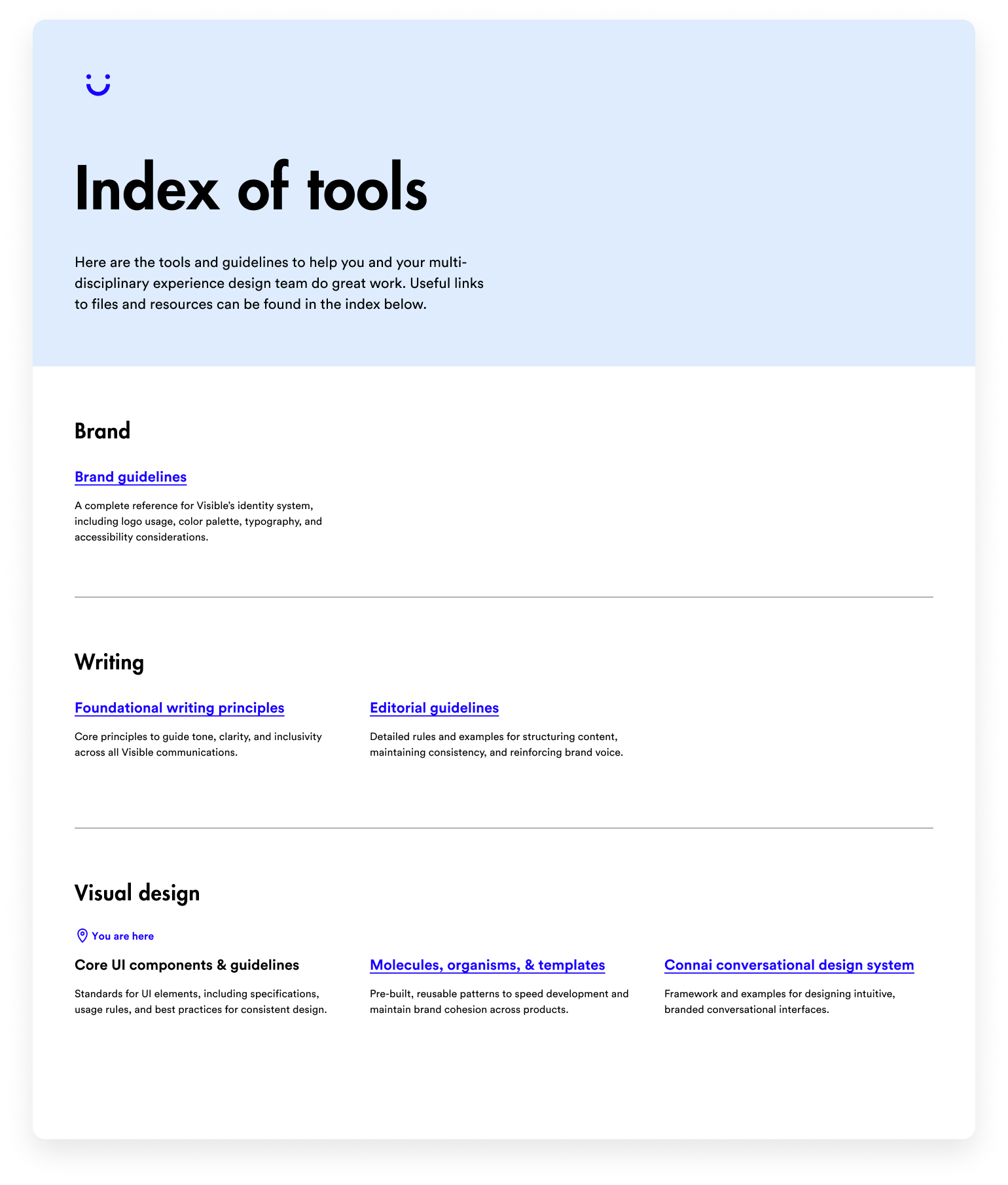
Visible: Creating a Scalable Design System
I led the creation of Visible’s design system, establishing a foundation to unify brand, design, and development.
Key results
Pioneered Visible’s first design system.
Established a single source of truth for all brand, design, and copy guidelines
Delivered a scalable system supporting $500K in business investment
Unifying fragmented design efforts
Design efforts were fragmented across teams, with decentralized resources and little integration. Incomplete guidelines led to inconsistent quality, while hard-to-use components pushed teams toward ad-hoc solutions outside the system.
Auditing existing materials
We began with a comprehensive audit of existing materials. We reviewed templates, UI components, and writing assets to see how they were used in practice. This revealed patterns, redundancies, and opportunities for unification.
We collaborated closely with the Visible team to map workflows, identify the highest-impact areas for improvement, and prioritize recommendations based on feasibility and alignment with brand and product goals.

From style to system
We applied the atomic design methodology to structure the system, starting with foundational styles, moving to core UI components, and scaling up to molecules, organisms, and templates.
Governance
We created onboarding processes, governance documentation, and a centralized index of assets to support adoption and ongoing maintenance.
Future Growth
We also provided a prioritized backlog of recommended enhancements to expand and evolve the system.
Documenting for consistency
Our documentation ensured designers and developers had everything needed to build consistently.
Establishing a single source of truth
The design system established a single source of truth for brand, design, and copy, improving consistency across all teams. In 8 sprints over 16 weeks, a small design team delivered a scalable system ready to grow with the organization.
Unified Standards
Brand: Ensured alignment with Visible’s identity and accessibility goals.
Writing: Added foundational principles and expanded editorial guidelines for clarity, inclusivity, and tone.
Visual Design: Standardized colors, typography, spacing, grid, and elevation. Documented all usage guidelines.



